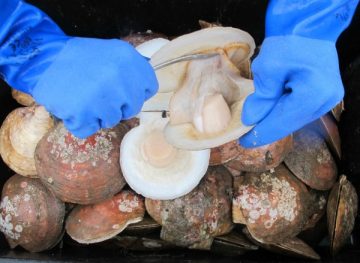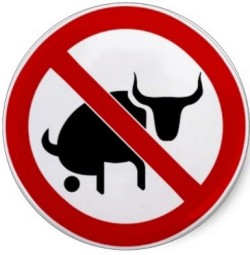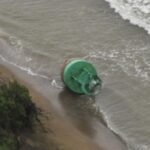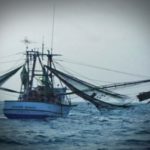Tag Archives: Individual Fishing Quota
NOAA Approves State Water Exemptions for Scallop Fisheries in Maine and Massachusetts
 The State Waters Scallop Exemption Program allows federal permit holders to fish in the state waters scallop fishery on a more equitable basis where federal and state laws are inconsistent. The Program specifies that a state with a scallop fishery may be eligible for state waters exemptions from specific regulations if it has a scallop conservation program that does not jeopardize the objectives of the Atlantic Sea Scallop Fishery Management Plan. click here to read the press release 12:41
The State Waters Scallop Exemption Program allows federal permit holders to fish in the state waters scallop fishery on a more equitable basis where federal and state laws are inconsistent. The Program specifies that a state with a scallop fishery may be eligible for state waters exemptions from specific regulations if it has a scallop conservation program that does not jeopardize the objectives of the Atlantic Sea Scallop Fishery Management Plan. click here to read the press release 12:41
Charlie Melancon’s Department Of Wrongdoing And Falsehood
 Have you been paying attention to the chaos at hand with the Louisiana Department of Wildlife and Fisheries? It appears that there is a full three-ring circus going on with DWF and its secretary, the former Democrat congressman Charlie Melancon. And after eight months on the job it’s pretty clear that perception among the in-the-know crowd was largely correct. The department is awash in controversy, if not criminality, and those affected by it are furious. To full explain this, we should go back several years to a program set up at the federal level. The Gulf of Mexico Fishery Management Council, which is a federal commission set up to govern offshore fishing in the five Gulf states (Florida, Alabama, Mississippi, Louisiana and Texas), and the National Marine Fisheries Service set up something called the Individual Fishing Quota system, or IFQ, to govern commercial fishing for red snapper. Meaning, the federal government resorted to crony capitalism as a means to govern Gulf red snapper fisheries. If you were a big player in the red snapper harvest before the program got started, you were one of the cronies and your incumbency would be protected. Read the story here. 19:20
Have you been paying attention to the chaos at hand with the Louisiana Department of Wildlife and Fisheries? It appears that there is a full three-ring circus going on with DWF and its secretary, the former Democrat congressman Charlie Melancon. And after eight months on the job it’s pretty clear that perception among the in-the-know crowd was largely correct. The department is awash in controversy, if not criminality, and those affected by it are furious. To full explain this, we should go back several years to a program set up at the federal level. The Gulf of Mexico Fishery Management Council, which is a federal commission set up to govern offshore fishing in the five Gulf states (Florida, Alabama, Mississippi, Louisiana and Texas), and the National Marine Fisheries Service set up something called the Individual Fishing Quota system, or IFQ, to govern commercial fishing for red snapper. Meaning, the federal government resorted to crony capitalism as a means to govern Gulf red snapper fisheries. If you were a big player in the red snapper harvest before the program got started, you were one of the cronies and your incumbency would be protected. Read the story here. 19:20
CFOOD: Ethical Issues in the Gulf Snapper Fishery
 In 2007 the Gulf snapper fishery moved to an individual fishing quota management system (IFQ). Under this system, each fisher was allocated a certain amount of fish for the year instead of having a fishing season and race to fish. Kingpins of the Gulf make millions off red snapper harvest without ever going fishing by Ben Raines, AL.com January 24th 2016 “AL.com has looked into the issue of leasing of red snapper quota, and found that prices for commercial leases have meant working fishermen often pay more to lease snapper quota from the quota holders than they earn from the catching the fish itself. They question why commercial snapper, unlike oil or forestry products, should not be put out to bid, but allocated to the historical fishermen.” Raines concluded that 77 percent of the annual red snapper catch is held by just 55 people. Bruce Turris, President of Pacific Fisheries Management Inc. responds. Read it here 21:12
In 2007 the Gulf snapper fishery moved to an individual fishing quota management system (IFQ). Under this system, each fisher was allocated a certain amount of fish for the year instead of having a fishing season and race to fish. Kingpins of the Gulf make millions off red snapper harvest without ever going fishing by Ben Raines, AL.com January 24th 2016 “AL.com has looked into the issue of leasing of red snapper quota, and found that prices for commercial leases have meant working fishermen often pay more to lease snapper quota from the quota holders than they earn from the catching the fish itself. They question why commercial snapper, unlike oil or forestry products, should not be put out to bid, but allocated to the historical fishermen.” Raines concluded that 77 percent of the annual red snapper catch is held by just 55 people. Bruce Turris, President of Pacific Fisheries Management Inc. responds. Read it here 21:12
More Catch Shares – NPFMC adds options to Gulf of Alaska bycatch package
 The North Pacific Fishery Management Council has added an alternative to the ongoing redraft of the Gulf of Alaska bycatch management plan. The council now has a broad array of options, including 100 percent observer coverage for Gulf of Alaska trawlers, cooperative catch shares, individual catch shares of both groundfish quota and bycatch caps, and reductions in overall bycatch caps. The plan aims to slow the “race for fish” that accompanies derby-style, open access fisheries, where vessels compete with each other to catch as much as possible within the season dates. Read the rest here 15:23
The North Pacific Fishery Management Council has added an alternative to the ongoing redraft of the Gulf of Alaska bycatch management plan. The council now has a broad array of options, including 100 percent observer coverage for Gulf of Alaska trawlers, cooperative catch shares, individual catch shares of both groundfish quota and bycatch caps, and reductions in overall bycatch caps. The plan aims to slow the “race for fish” that accompanies derby-style, open access fisheries, where vessels compete with each other to catch as much as possible within the season dates. Read the rest here 15:23
Fight to Stop Privatization of US Fisheries Continues
 US – In the face of the National Oceanic and Atmospheric Administration’s (NOAA) request for increased spending of $2,000,000 to develop and implement new catch share – or Individual Fishing Quota – programmes, a bipartisan group of 22 Members of Congress have made a stand for the nation’s small-scale fishermen. Read more here thefishsite 10:54
US – In the face of the National Oceanic and Atmospheric Administration’s (NOAA) request for increased spending of $2,000,000 to develop and implement new catch share – or Individual Fishing Quota – programmes, a bipartisan group of 22 Members of Congress have made a stand for the nation’s small-scale fishermen. Read more here thefishsite 10:54
There is no Sharing in Catch Shares Food and Water Watch Read more here
















































